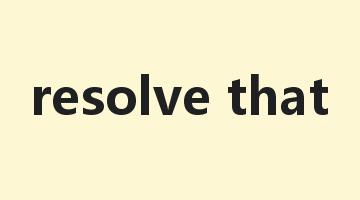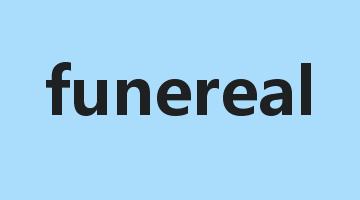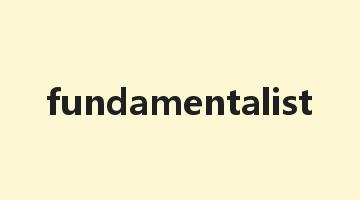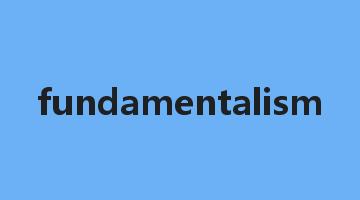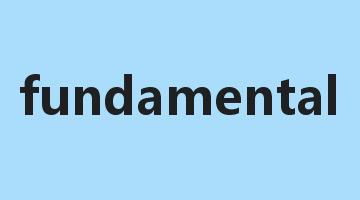不用被动语态的情况
2024-02-14 11:25:20 学考宝 作者:佚名
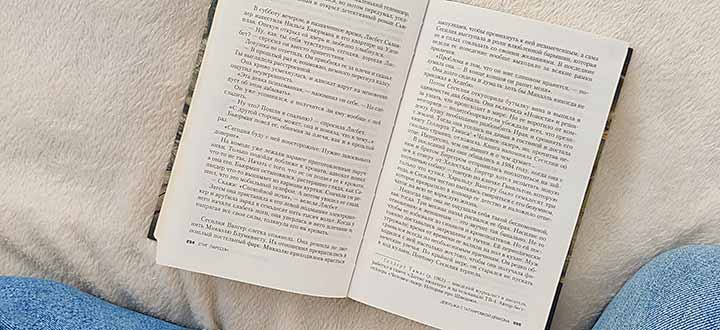
不用被动语态的情况
1) 不及物动词或动词短语无被动语态:
appear1, die2 disappear3, end (vi. 结束), fail4, happen, last, lie5, remain6, sit, spread7, stand
break out, come true8, fall asleep9, keep silence10, lose11 heart12, take place.
After the fire, very little remained13 of my house.
比较: rise14, fall, happen是不及物动词;raise, seat是及物动词。
(错) The price16 has been risen17.
(对) The price has risen.
(错) The accident18 was19 happened last week.
(对) The accident happened last week.
(错) The price has raised20.
(对) The price has been raised.
(错) Please seat15.
(对) Please be seated21.
要想正确地使用被动语态,就须注意哪些动词是及物的,哪些是不及物的。特别是一词多义的动词往往有两种用法。解决这一问题唯有在学习过程中多留意积累。
2) 不能用于被动语态的及物动词或动词短语:
fit22, have, hold, marry23, own24, wish, cost25, notice26, watch agree27 with, arrive at / in, shake28 hands with, succeed29 in, suffer30 from, happen to, take part31 in, walk into, belong32 to
This key just fits33 the lock34.
Your story agrees35 with what had36 already37 been heard.
3) 系动词无被动语态:
appear, be become, fall, feel, get, grow, keep, look, remain, seem38, smell, sound, stay, taste, turn
It sounds good.
4) 带同源宾语的及物动词,反身代词,相互代词,不能用于被动语态:
die, death39, dream40, live, life41
She dreamed42 a bad dream last night.
5) 当宾语是不定式时,很少用于被动语态。
(对) She likes to swim.
(错) To swim is liked by her.
重点词汇点拨
vi.出现,出场,出席,露面;似乎,好像,显得
参考例句:
- The students appear very nervous.学生们看起来很紧张。
- When night falls,stars appear.夜晚来到时星星出现。
v.死;死亡
参考例句:
- Flowers will die without water.没有水,花就会枯死。
- We shall die some day.我们总有一天要弃世而去。
vi.消失,不见了
参考例句:
- How can people suddenly disappear?为何人会突然消失?
- The snow will soon disappear when the warm weather comes.天气变暖时,雪很快就会融化。
v.失败,不及格,辜负,缺少
参考例句:
- If I should fail I would try again.万一失败,我还要试一试。
- If you fail now,who will pick up the pieces?你现在要是失败了,谁来收拾残局?
n.谎话;谎言;vi.躺;平放;展现;展开;位于;vt.说谎;躺
参考例句:
- We are looking for a place to lie.我们在找躺的地方。
- What did I lie about?我撒了什么谎?
vi.保持,逗留,剩余,残存
参考例句:
- The shops remain open until late every evening.这个商店每天晚上要营业到很晚才关门。
- Let things remain as they have been in the past.让事情照旧吧!
n.传播,散布,伸展;adj.扩延的,伸展的;vt.展开,铺开;传播,推广;伸出;涂,敷
参考例句:
- The news spread very widely.这消息传播得很广。
- She spread a cloth on the table.她用一块布铺在餐桌上。
a.真实,不假的;忠实,可靠的;正确无误的
参考例句:
- He who doesn't reach the Great Wall is not a true man.不到长城非好汉。
- I will come and see if it is true.我要来了解一下,是否真有其事。
adj.睡熟了的,麻木的;adv.熟睡地
参考例句:
- The baby seems to be asleep.那婴孩好像是睡着了。
- My right foot is asleep.我的右脚麻木了。
n.沉默,无声,静寂,湮没,无声息;vt.使缄默;int.安静!
参考例句:
- She raised a hand for silence.她举手示意大家安静。
- They drove home in silence.他们默不作声地开车回家。
v.丢失,失去,迷失,(钟表)走慢
参考例句:
- I always lose at cards, with my bad luck.我不走运,打牌总输。
- I can always lose myself in a good book.一本好书会使我爱不释手。
n.心,中心,要点;v.鼓起勇气,激励
参考例句:
- He is old in body but young in heart.他人老心不老。
- I thank you from the bottom of my heart.我从心坎里感谢你。
v.留下( remain的过去式和过去分词 );保持;留待;仍然是
参考例句:
- She remained quiet and controlled. 她沉默不语保持克制。
- She remained dry-eyed throughout the trial. 整个审讯过程中她没掉一滴眼泪。
v.(rose,risen)上升;升起;起床;起立
参考例句:
- The sun rises.太阳升起来。
- I always rise with the bell.我总是听到铃声就起床。
n.座,座位,位子,席位;所在地;vt.使坐下,使就座,设座于
参考例句:
- Go back to your seat.回到你的坐位去。
- Which seat do you prefer?你更喜欢哪个位置?
n.价格,代价,价值;vt.定格,标价,比较价格
参考例句:
- The goods have gone up in price.这些商品的价格已经上涨。
- They are selling the bikes off the market price.他们按低于市价卖出自行车。
adj.升起的v.起义( rise的过去分词 );升起;(数量)增加;休会
参考例句:
- Prices have risen in order to offset the increased cost of materials. 为补偿原料成本的增加而提高了价格。
- a young actor who has recently risen to prominence 最近崭露头角的一名年轻演员
n.事故,意外的事
参考例句:
- He had a traffic accident.他出了交通事故。
- An accident was happened yesterday.昨天发生了一起事故。
v.(is,am的过去式)是,在
参考例句:
- He said he was right.他说他是正确的。
- He was cold and hungry.他又冷又饿。
adj.凸起的,浮雕的,发酵的
参考例句:
- She raised the gun and fired. 她举枪射击。
- the sound of raised voices 提高嗓门的说话声
adj.就座的;固定的;有…座位的;根深蒂固的v.使就座( seat的过去式和过去分词 );使就职;使获得座位(或席位);可容纳若干座位
参考例句:
- The country's political divisions are deep-seated. 这个国家的政治分歧根深蒂固。
- The country's political divisions are deep-seated. 这个国家的政治分歧根深蒂固。
adj.适宜的,对的,准备好的;v.适合;安装;n.适宜;发作;一阵
参考例句:
- I am sure you can fit me in somewhere.我相信你能找个地方安排我。
- She is fit for the job.她适合做这项工作。
v.嫁;娶;与…结婚
参考例句:
- I want you for my wife; will you marry me?我希望你做我的妻子,你愿意和我结婚吗?
- John is going to marry Mary.约翰将要和玛丽结婚。
v.拥有,持有;adj.(属于)自己的,特有的
参考例句:
- I need my own space.我需要自己的空间。
- Everything I own is yours.我所有的一切都是你的。
n.价钱,费用,成本;损失,牺牲
参考例句:
- What does the book cost?这本书值多少?
- He saved his daughter at the cost of his life.他以牺牲自己的生命挽救了女儿。
n.通知,布告;注意,认识;vt.看到,注意到
参考例句:
- Post this notice on the wall.把这个通知贴在墙上。
- I didn't notice you when you passed by.你走过时,我没有注意到你。
vi.同意,赞成,承认,适合;vt.同意
参考例句:
- I totally agree with you.我完全同意你的看法。
- They could not agree about who should do the work.对于谁该做这项工作,他们意见不一致。
n./vt.(shook;shaken)震动;颤抖;vi.摇动,摇
参考例句:
- Let's shake hands and be friends.让我们握手做朋友。
- Shake,shake,shake your shoulders,shake them up and down.耸耸肩,从上到下耸耸肩。
vt.成功,继承,继续;vi.接替,有作为
参考例句:
- It was a good try but it didn't succeed.这是一个很好的尝试,但没有成功。
- If he has no children, who will succeed?如果他没有孩子,谁将继位?
vi./vt.遭受;忍受;经历
参考例句:
- She couldn't bear to see others suffer.她不忍看见别人受苦。
- Kings go mad and the people suffer for it.〔谚语〕国王发狂,百姓遭殃。
n.部份,零件;角色,部位;vt.分开,分离,分配;vi.分离,离开;adv.部份地;adj.分离的
参考例句:
- This is the broken part.这就是损坏的部件。
- Which part do you play?你演哪一个角色?
vi.属于,附属;应归入
参考例句:
- Does this house belong to Mr. Winter? 这幢房子是温特先生的吗 ?
- We belong to the new club. 我们是这个新俱乐部的成员。
abbr.foreign individual travelers 国外个体旅行者;fuel injection timing system 注射定时系统v.(使)适合( fit的第三人称单数 );合上;使适合;试穿
参考例句:
- The bookcase fits neatly into the alcove. 书架正好放得进壁凹。
- a one-size-fits-all monetary policy 一刀切的货币政策
vi.锁,锁上,锁住,紧闭;vt.锁,锁上,拘禁;隐藏;使固定,卡住;n.锁,刹车;水闸;一缕头发
参考例句:
- This box doesn't lock.这只箱子锁不上。
- Will you lock up the house,please?请将房门锁起来,好吗?
v.同意,赞同( agree的第三人称单数 );[语法学](在性、数、人称或格方面)一致;相同;和睦相处
参考例句:
- His explanation agrees with the facts of the situation. 他的解释与实情相符。 来自《简明英汉词典》
- He is so tame that he agrees with everybody. 他很随和,总是顺从他人的意见。 来自《简明英汉词典》
vbl.have的过去式和过去分词;conj.有
参考例句:
- I just had a good idea!我有个好主意!
- The boy had a small branch of a tree in his hand.这个男孩手上拿一条小树枝。
adv.已经
参考例句:
- We have eaten already.我们已经吃过了。
- I've been there already,so I don't want to go again.我早已去过那里了,所以我不想再去了。
vi.好像,似乎,看来好像
参考例句:
- You seem very much alive today.你今天好像非常活跃。
- The children seem very happy.孩子们似乎很快活。
n.死,死亡
参考例句:
- His death was a great shock to the family.他的死对他的家庭是一个很大的打击。
- I was shocked at the news of her death.我听到她去世的消息十分震惊。
n.梦;梦想;v.做梦;向往
参考例句:
- I remembered my grandfather in my dream last night.昨晚我梦见了我的外祖父。
- It's my dream to win a Nobel Prize.我的理想是获得诺贝尔奖。
n.生活;生命
参考例句:
- The doctor came in time to save his life.医生及时来抢救他的生命。
- At last he knew the meaning of life.终于,他知道了生命的意义。
v.做梦,向往( dream的过去式和过去分词 );想到,料到;[常用于疑问句或否定句]考虑到,想到,料到;虚度(光阴),(在空想中)度过(时间),迷迷糊糊地度过(与 away,out 连用)
参考例句:
- I never dreamed of there being a picture on the wall. 我根本没想到墙上有张画。 来自《简明英汉词典》
- When she was a little girl, she dreamed of becoming a ballerina. 她小时候梦想成为芭蕾舞演员。 来自《简明英汉词典》



